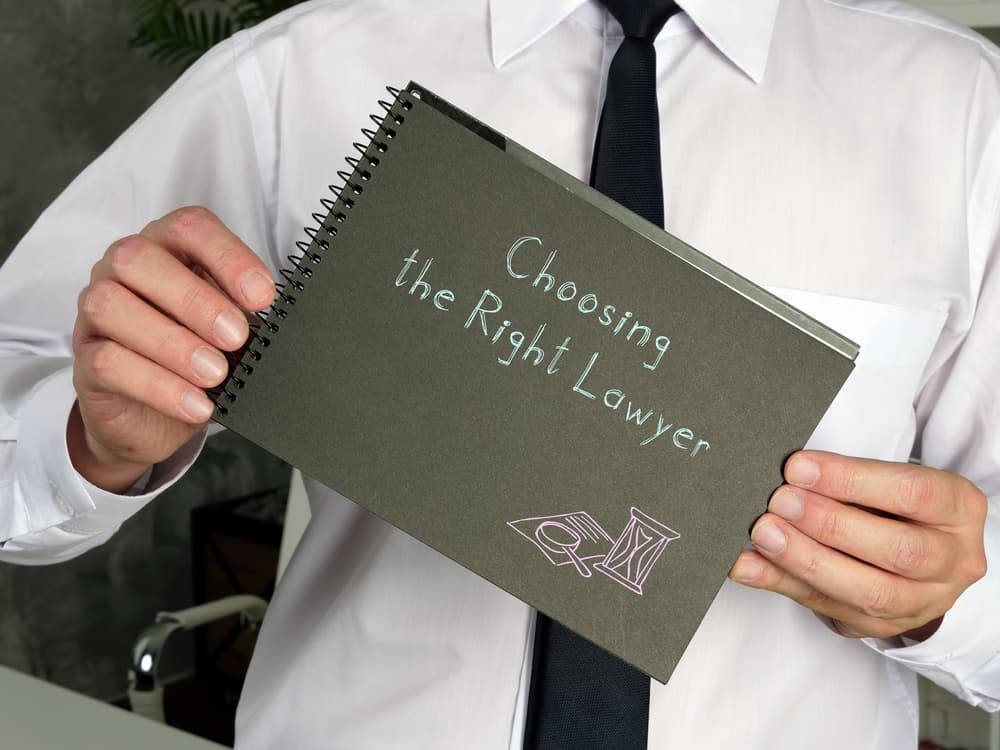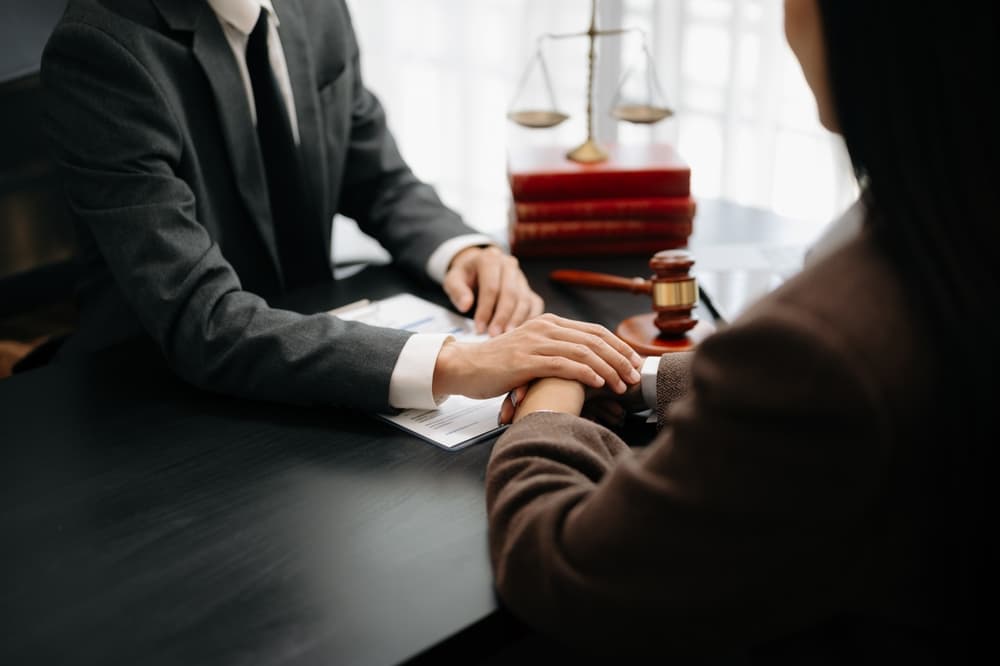
Suffering a sudden and unexpected injury can be both frustrating and stressful. A traumatic event can change your life in an instant. On top of attending to your medical needs after an accident, you may find yourself looking for personal injury lawyers in your area.
However, knowing where to begin when searching for lawyers can be overwhelming. There may be dozens – if not hundreds – of lawyers who seem to fit your needs in your geographical area, but not all are good.
Choosing a personal injury lawyer may quickly become time-consuming and daunting if you do not know what to look for. With this guide, you can learn how to make searching for a lawyer less strenuous and more straightforward.
If you follow the tips outlined below, know the traits you should focus on, and avoid mistakes, you can narrow your choices and use your best judgment to choose the lawyer you feel confident in.
8 Steps to Choosing a Lawyer for Your Personal Injury Case
If you have suffered an injury in an accident caused by another party's negligence, you probably have many questions but very few answers right now. While a lawyer can answer your questions, you do not want to hire just any lawyer.
You want to hire the right one for your case. However, many people do not understand what steps are necessary to ensure that they are choosing a lawyer who can help them accomplish their objectives. The process of choosing a personal injury lawyer consists of the following steps:
1. Asking for Personal Referrals
The first place to look for a lawyer is your friends, family members, colleagues, and others whose opinions you trust and respect. Asking for personal referrals can give you peace of mind that you are choosing someone who has done a good job for people from your inner circle.
2. Search Online
Suppose your friends, family members, and other people you know have never been in the situation you are in right now or never hired a lawyer. In that case, you will likely have to search for personal injury lawyers online.
Do your research wisely. Just because the lawyer's website appears first in the search results does not necessarily mean they are the best.
3. Think About the Things That Matter to You
More than 50,000 personal injury lawyers work in the United States. Trying to pick one lawyer out of dozens or hundreds of lawyers in your city can feel daunting.
Narrow down your options by prioritizing the things that matter most to you. Make a list of qualities you want to see in a prospective lawyer. With this list, you can expedite searching for the right lawyers.
4. Compiling a List of Good Candidates
Once you narrow your options, you can shortlist the lawyers who fit your case well. This is the list of candidates you will will speak with over the phone or meet to discuss your case in detail.
5. Review Each Candidate Individually
Before contacting lawyers from your list, look at their websites and reviews. Some of the information you want to pay attention to includes their credentials, client testimonials, experience with similar cases, years of experience overall, past settlements and verdicts, and many more.
Contrary to popular belief, the biggest law firms do not always produce the best results, so the size of the law firm should not be the primary factor considered when choosing a lawyer.
6. Set Up a Consultation
Many personal injury lawyers provide free, no-obligation consultations to prospective clients. You can use it to your advantage and interview multiple candidates from your list before making the final decision.
Ask as many questions as you can and take notes during such consultations. Treat these consultations as a job interview for a lawyer. You need a prospective lawyer to convince you they are the best candidate for the job.
7. Meet with the Best Candidate(s)
Phone consultations alone may not give you a complete picture of the lawyer's overall competency you consider your best candidate. Set up a meeting time with the best candidate(s) from your list.
View it as a red flag if they refuse to meet you in person (e.g., by making excuses that they do not have time). If a lawyer does not have time to meet with a prospective client, they will most likely not have enough time to devote to the case.
8. Choose the Best Personal Injury Lawyer
You can confidently make an informed decision after completing all the steps mentioned above. If you ask sufficient questions and spend enough time discussing your case with the right candidate, the decision to hire may come easy, with no second-guessing.
6 Traits to Look for in a Personal Injury Lawyer

Protecting a client's rights and upholding the law are two primary duties of a lawyer. Every lawyer has unique qualities and skills, but it is rare for every lawyer to be good at everything.
For example, an attorney may be an excellent communicator but have inadequate analytical skills. Or they may be very assertive but lack empathy and compassion.
You need to find someone with the perfect balance of the qualities that best align with your values and preferences. Ideally, you should strive to hire a lawyer who has all – or most – of the following traits:
1. Communication Skills
The lawyer's communication skills are the things a prospective client will notice immediately when discussing their case over the phone or in person. When a lawyer lacks communication skills, they may be unable to articulate their arguments effectively and present a client's case in the most convincing manner possible.
An excellent communicator can authentically connect with judges and juries to ensure the most favorable resolution possible. Good communication skills combined with the ability to listen are vital to providing quality legal representation because a lawyer must analyze the client's problem and explain complex legal concepts in a way that the client easily understands.
2. Research and Analytical Skills
Being able to analyze large amounts of information requires critical thinking skills. A good lawyer understands how to read and apply the law to a client's case. Lawyers with research and analytical skills are more likely to devote the necessary time and effort to help a client build a strong case based on the available facts.
3. Good Judgment and Ethical Behavior
Professional and reputable lawyers behave ethically and always strive to make ethical decisions about a client's case.
A lawyer with good judgment can help a client understand whether or not their case is worth pursuing, which will help the client make an informed decision about how to proceed.
4. Empathy and Compassion
Empathy is having the ability to share another person's feelings and/or experiences by imagining yourself in their situation. A lawyer who is both empathetic and compassionate genuinely cares about you.
Empathy and compassion allow a lawyer to understand what his or her client is going through and provide the client with much-needed support and guidance throughout the case. A lawyer and client connection is essential for developing a solid working relationship.
5. Assertiveness
Assertiveness should not be confused with aggression. An assertive lawyer demands respect in the courtroom and ensures that their statements make an impact.
An aggressive lawyer, by contrast, is someone who ignores the opinions of others and might be seen as an ill-tempered person. Assertiveness helps a lawyer respond better in stressful situations but does not let their ego get in the way.
6. Attention to Detail
One of the many things distinguishing a good lawyer from a bad one is their attention to detail.
A detail-oriented and meticulous lawyer will consider all relevant information when building a strong case for a client. The ability to pay attention to the smallest details can make a significant difference in the outcome of a personal injury case.
Mistakes to Avoid When Looking for a Personal Injury Lawyer
The quest of finding a lawyer who best aligns with your needs may feel like an arduous task. Those who are not unfamiliar with the process may end up making several mistakes that have the potential to derail their personal injury claim.
Here are some mistakes to avoid when choosing a personal injury lawyer:
- Not hiring a lawyer in the first place. One of the most common mistakes injured individuals make is thinking they can handle their injury claim without professional assistance. However, by not hiring a lawyer (either because you cannot find the right lawyer or you think you do not need one), you can jeopardize your case and inadvertently lower the compensation you are entitled to.
- Not doing your research first. There are both good and bad lawyers, and you have to do your research to be confident that you are hiring the best one for your case. Research means asking your friends, family members, and other people you trust and looking for attorneys in your area on the Internet. If you follow the tips outlined above, you will know what traits to look for in prospective lawyers during your research.
- Hiring the lawyer who promises the biggest payout. Many people end up hiring the lawyer who offers them the most money. However, making your choice based solely on the promise of a large payout is never wise. Often, lawyers tell their prospective clients what they want to hear just to get hired. Do not fall for this trick. Before hiring a lawyer, ensure they have the necessary experience and a proven track record of success to deliver on their promise.
- Not understanding the fee structure. Often, injured victims hire lawyers without understanding how much they charge and when they will have to pay their lawyer for the services. There are several different fee structures that personal injury lawyers use. Some will charge their client a percentage of the final settlement, while others get paid hourly. In recent years, many lawyers started charging their clients on a contingency fee basis, which means they only get paid if they win. If a case does not succeed, neither the client nor the lawyer gets any money in a contingency fee arrangement.
- Hiring a lawyer who does not have the time or resources to handle your case properly. "The more clients I have, the more money I can make" is the strategy many unscrupulous and greedy lawyers use when accepting new clients. However, the quality of representation tends to suffer when lawyers prioritize the quantity. You need to make sure a prospective lawyer has the necessary resources and availability to work on your case, or you may end up with mediocre representation that does not bring the results you are looking for.
- Not knowing what questions to ask. Your initial consultation and first meeting with a lawyer are the perfect opportunity to ask questions and, based on the answers provided, make an informed decision about whether or not the lawyer will be a good fit for your case. Unfortunately, many people do not know exactly what questions to ask. Some of the questions to ask a prospective lawyer include, "How much do you charge?", "Have you handled cases like mine before?" "What is your current availability?" "Who will be handling my case?" and "How much is my case worth?" to name a few.
- Not discussing the timeline and your next steps. After you have chosen a personal injury lawyer, you need to discuss what happens next. A competent lawyer can set appropriate and honest expectations for your case and explain your next steps. While you should not force your lawyer to give you an exact timeline, you can reasonably expect them to estimate a range.

Choose the right lawyer for your personal injury case. Without a lawyer, you will face a complex and confusing legal process.
With the right lawyer, you can navigate the legal landscape confidently and have peace of mind knowing that your case is in good hands.



